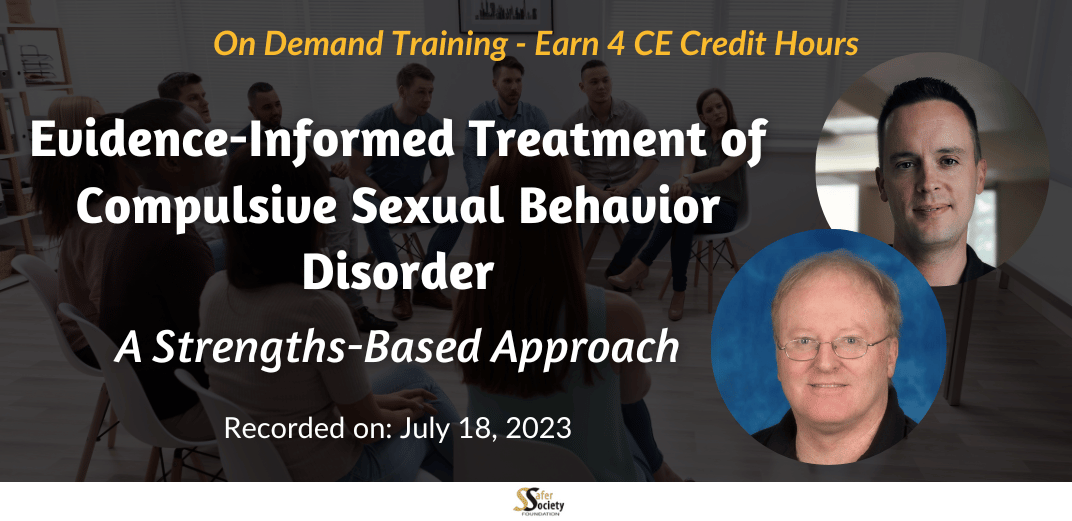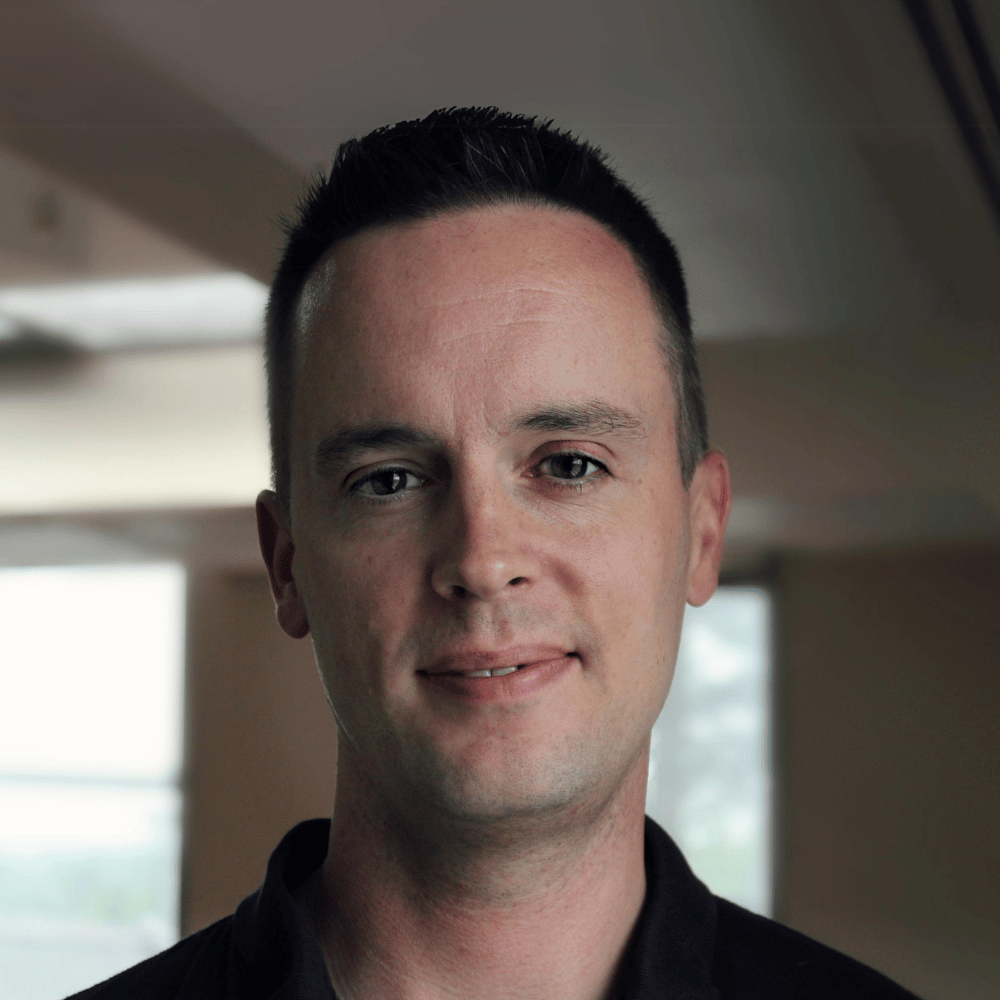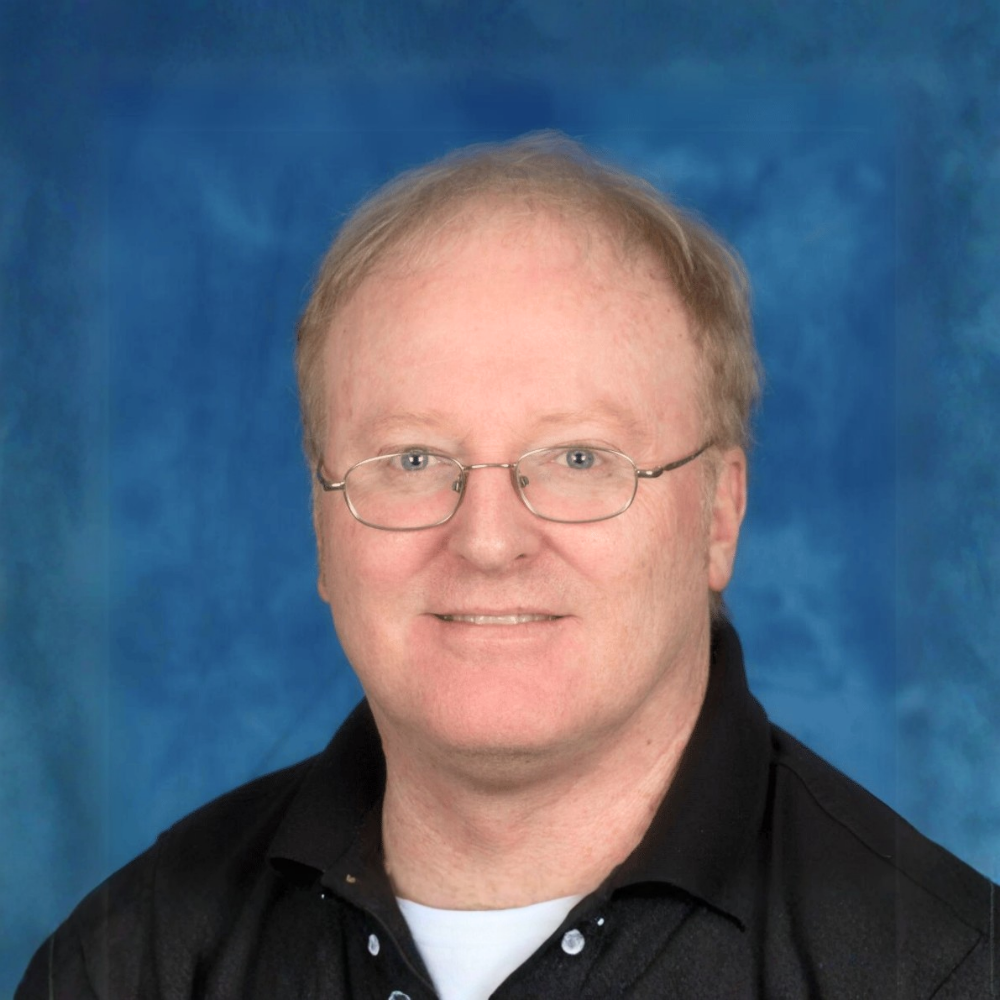
Evidence-Informed Treatment of Compulsive Sexual Behavior Disorders: A Strengths-Based Approach
Already purchased an On Demand training?
Click here to access your Safer Society On-Demand Training Center account.
Compulsive Sexual Behavior Disorder (CSBD) appears in the International Classification of Diseases – 11 (ICD-11) as an impulse control disorder and is characterized by a persistent pattern of failure to control intense, repetitive sexual impulses, urges, and behaviors. In this training, Drs. Kingston and Marshall present new data relevant to the assessment and treatment of CSBD among individuals convicted of sexual offending and offer new, evidence-informed treatment approaches.
CSBD has been consistently embedded in etiological models of sexually aggressive behavior and is associated with sexual recidivism. As a diagnosis, CSBD is riddled with problems that range from its core theoretical conceptualization to specific issues about the content and structure of the scales used to measure it. Moreover, there is a notable lack of evidence-based, manualized interventions for individuals with CSBD.
Drs. Kingston and Marshall review the controversies associated with CSBD and describe the treatment approaches that they have developed. The presenters also provide outcome data related to their approach.
Topics covered in this training include:
- A model of possible pathways to CSBD
- Assessment and diagnosis of CSBD
- Dimensions of CSBD
- Treatment delivery considerations
- Treatment strategies
- Relevant guiding theories
1) List the defining features of CSBD
2) Identify the predominant ways in which CSBD has been conceptualized and how this is relevant for both assessment and treatment
3) Explain the critical issues related to both reducing risk for future sexual offending and managing CSBD
4) Describe methods for treating CSBD
5) Explain the characteristics of effective treatment providers
Audience
This training is for professionals working with people who have experienced complex trauma as well as people who have perpetrated abuse. Professionals who will benefit from this training include social workers, psychologists, clinical counselors, and interested paraprofessionals.
Content Level
Disclosure
Continuing Education Approval
American Psychological Association (APA)
Safer Society Foundation, Inc. is approved by the American Psychological Association (APA) to sponsor continuing education for psychologists. Safer Society Foundation, Inc. maintains responsibility for this program and its content.
Who's Presenting

Drew A. Kingston, PhD, ATSAF
Drew Kingston received his doctorate in clinical psychology at the University of Ottawa and completed his residency at the Royal Ottawa Health Care Group. He is a registered psychologist in the province of Ontario and is a licensed psychologist in the state of California. He is currently the Executive Clinical Director and Director of Research of the HOPE program, a state-wide agency that provides assessment and treatment services to individuals who have come into contact with the law due to sexual aggression and atypical sexual interests. Dr. Kingston is also Senior Scientist at the Royal Ottawa Hospital’s Institute of Mental Health Research and an adjunct clinical professor in the department of Psychiatry at McMaster University. In 2018, Dr. Kingston was recognized by the Canadian Psychological Association as one of its 28 Canadian research innovators. Dr. Kingston was also awarded the Association for the Treatment of Sexual Abusers’ Early Career Research Award and has been designated a fellow of the ATSA organization. Dr. Kingston is an ad-hoc reviewer for many journals and is on the editorial boards of the Archives of Sexual Behavior and Sexual Abuse. Dr. Kingston has published more than 50 peer-reviewed articles and book chapters in the areas of serious mental illness, hypersexuality, paraphilic disorders, the impact of pornography on sexual aggression, and the sexual offence cycle.

Liam Marshall, PhD
Liam has an extensive background encompassing over 20 years as a therapist and consultant in many correctional and mental health facilities. In 2013, Liam joined Waypoint as a researcher in the Research and Academics Division, along with being a clinician in the Provincial Forensic Programs Division (high-secure division). He has conducted research, provided treatment, training, and consulting on offender and offenders with mental health problems for over two decades at several institutions and facilities. He has over 100 peer-reviewed publications, including four books, including, most recently, The Wiley-Blackwell handbook on the assessment, treatment, and theories of sexual offending. Volume: Treatment (John Wiley & Sons), co-edited with Dr. W. L. Marshall. He is a board member and reviewer for many international journals, including Sexual Addiction and Compulsivity: The Journal of Treatment and Prevention. He has made numerous international conference presentations on offender and mental health issues regarding sexual behaviours, as well as on anger disorders, domestic violence, and problem gambling. Liam has delivered trainings in over 20 countries for therapists and other staff who work with sexual, violent, and other offenders, as well as offenders with mental health problems. He attained his PhD in Developmental Psychology at Queen’s University in 2010, and has a BA (Hons) and MA, also both from Queen’s.
